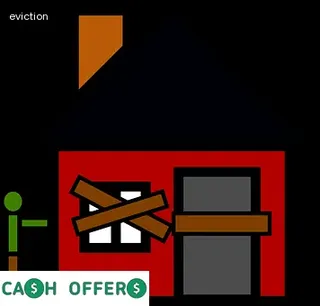Creating a winning portfolio is essential to success in any field, and the same holds true for landlords. A winning portfolio includes a thorough understanding of Pennsylvania eviction laws and procedures.
It is important to understand the entire process from start to finish before attempting to evict a tenant. There are specific legal steps that must be taken in order for an eviction to be successful, such as providing proper written notice, filing paperwork with the court system, completing all necessary forms, attending hearings and adhering to any court orders.
Landlords should also familiarize themselves with their local tenant-landlord laws and regulations so that they can ensure compliance with all applicable laws throughout the process. By taking the time to create an effective portfolio, landlords can minimize their chances of costly mistakes or legal battles down the line.

Eviction is a serious and often difficult subject, but it is important to understand the reasons why a landlord may choose to pursue this action.
Common reasons for eviction in Pennsylvania include failing to pay rent, violating lease terms, damaging the property, engaging in illegal activity on the premises, or creating a nuisance such as excessive noise.
Another frequent cause of eviction is when the tenant has overstayed their welcome - either by not leaving at the end of their lease term or by refusing to leave after being given a notice to quit.
It is important for tenants to understand their rights under Pennsylvania law and be aware of potential reasons for eviction so that they can avoid it if possible.
In Pennsylvania, the eviction process for tenants can begin with a landlord filing a complaint in court. The complaint must include detailed information about the tenant and their lease agreement.
It should also include information regarding any unpaid rent or damages to the property. After filing the complaint, the tenant will receive an Order of Possession from a judge that outlines when they must vacate the premises.
If a tenant fails to leave by the date indicated in this order, then the landlord may file a Writ of Possession with county officials to have them forcibly removed from the property. In some cases, a landlord may choose to file an ejectment action instead of an eviction complaint if they believe that the tenant is not legally occupying the property.
All filings must be made in accordance with Pennsylvania law and local rules regarding evictions and tenancy agreements.

The process of eviction in Pennsylvania is complex, and the Notice to Comply requirement is an important step. Landlords must provide tenants with a written notice that explains the problem and how they can fix it.
Tenants have fifteen days to comply with the instructions noted in the written notice before an eviction action may be taken against them. This notice must also include information about any applicable legal remedies that are available to the tenant, such as filing a complaint or requesting a hearing.
In some cases, landlords may also be required to give additional notices and follow certain procedures depending on their county or municipality's local laws. Understanding these requirements can help protect both tenants and landlords from unnecessary legal action during the eviction process in Pennsylvania.
As a landlord in Pennsylvania, it is important to understand the legal process for evicting a tenant. Serving the tenant is one of the most critical steps in the eviction process, and can be an intimidating and time-consuming task for even experienced landlords.
In order to serve the tenant in accordance with Pennsylvania law, it is essential that proper documentation is provided and delivered according to state regulations. After obtaining a court order authorizing eviction, landlords must provide the tenant with a Notice to Quit and then serve the document personally or via certified mail.
The Notice must include information such as the date of service, reason for termination, and date when possession of premises must be surrendered. This allows tenants to understand their rights and take any necessary steps prior to being evicted from their home.
Landlords should ensure that they have followed all procedures laid out by state law in order to protect themselves against any potential legal issues that may arise from an improper eviction procedure.

In Pennsylvania, when a landlord wishes to evict a tenant, the first step is to ask for possession. This process begins with the landlord sending an official notice to the tenant, typically via certified mail or by posting it in a conspicuous place on the property.
The notice must state the reason why the landlord is asking for possession and give the tenant time to vacate. If they do not leave within this time frame, then the landlord can begin formal eviction proceedings in court.
During this proceeding, both parties will have an opportunity to present their case and a judge will decide whether or not to grant possession of the property back to the landlord. In some cases, if warranted, a judge may also award damages or other compensation to either party involved.
Properly following all steps of this process is essential for both landlords and tenants in Pennsylvania as it ensures that all rights are respected and legalities are honored throughout the eviction process from start to finish.
In Pennsylvania, the eviction process begins with a written notice, often called a Notice to Quit, that must be served on the tenant by a sheriff or constable. The notice will include the amount of unpaid rent and other fees owed, as well as when payment must be made.
If payment is not made by the due date, the landlord can then file an eviction complaint in court. After filing, a hearing is set and both parties are required to attend.
At this point the judge will decide whether or not to issue an order for possession of the property. If granted, the tenant has a limited amount of time to remove themselves from the premises.
If they fail to do so, then law enforcement may be called in to forcibly remove them. Once possession of the property is regained by the landlord, it is up to them whether or not to pursue any additional claims for back rent or damages in court.

The Pennsylvania eviction process can be a lengthy ordeal for both landlords and tenants. To help make the process smoother, here is a quick reference guide outlining the timeline for an eviction in Pennsylvania.
The first step of the Pennsylvania eviction process is for the landlord to provide written notice to the tenant that details why they are being evicted, such as failure to pay rent or violating their lease agreement. If the tenant does not voluntarily move out by the date specified in the notice, then the landlord may proceed with filing a Landlord/Tenant Complaint form with local Magisterial District Court.
After this form has been filed, a hearing will be held in court where both parties can present their case. If the judge rules in favor of the landlord, then they will issue a Writ of Possession giving them permission to take possession of the premises within 10 days.
The tenant must vacate by that date or face further legal action such as fines or even jail time. By understanding and following this timeline, both landlords and tenants can ensure that all steps are taken properly when it comes to an eviction in Pennsylvania.
When facing an eviction hearing, tenants should be prepared to present evidence that can help their case. Depending on the type of eviction, tenants may want to gather documents such as a lease agreement and any paperwork related to any payment disputes.
Witnesses who can testify on behalf of the tenant may also be beneficial if available. It is important for tenants to provide proof that they have been meeting all rental obligations or have valid reasons for why they have not been able to pay rent.
Tenants should come to the hearing with this evidence and be ready to explain the situation in detail when necessary. Supporting documentation showing a history of late payments or attempts at communication with the landlord can also help prove a tenant's innocence in some cases.
Lastly, it is important for tenants to understand their rights according to Pennsylvania state law so they know what arguments are valid and how much time they have before an eviction order is issued.

A self-help eviction is a process by which a tenant can be evicted from their home without the assistance of a court or sheriff. According to Pennsylvania law, this type of eviction is only allowed when the tenant has breached their lease agreement and has been provided with proper notice, giving them at least thirty days to vacate the property.
This process is often used by landlords who cannot afford legal fees or those who simply want to save time in the eviction process. Self-help evictions are not recommended as they are often illegal and may lead to serious consequences for both parties involved.
When initiating a self-help eviction, it is important for both landlord and tenant to understand the laws related to such an action and take all necessary steps to ensure compliance with applicable regulations. Tenants facing potential self-help evictions should seek advice from experienced legal professionals before proceeding.
The Pennsylvania eviction process can be daunting and complex, but tenants have access to several helpful resources. Free downloads are available to help tenants understand their rights and responsibilities throughout the entire process.
There are form letters that outline the tenant's rights with regards to eviction notices, as well as informational brochures that detail all aspects of the eviction process from start to finish. Additionally, tenants can find legal guidance documents that provide direction on how to navigate rental agreements, negotiate leases or even represent themselves in court if necessary.
With these free resource downloads, tenants have reliable tools to help them through the Pennsylvania eviction process.

The Pennsylvania eviction process for tenants can be time consuming and difficult to manage from start to finish. DoorLoop is a rent collection service that streamlines the process, making it easier for landlords and tenants alike.
It simplifies the way owners can collect rent payments by providing payment tracking, automated tenant reminders and direct deposit services. With its integrated platform, DoorLoop offers secure and convenient payment methods that help to ensure rent is paid on time.
DoorLoop also helps landlords gain visibility into their tenancy records while providing tenants with an easier way to pay their rent. The platform reduces paperwork and eliminates the need for manual tracking of tenant payments, allowing landlords to focus on other aspects of property management without worrying about collecting rent.
With its efficient rental collection system, DoorLoop is the perfect solution for both landlords and tenants in Pennsylvania looking for an easy way to manage their rental payments from start to finish.
DoorLoop is a leading online platform for landlords, property managers, and tenants to manage the eviction process from start to finish. With DoorLoop, landlords can access all the forms and resources necessary to navigate the eviction process in Pennsylvania.
The platform also provides tailored legal advice and representation for each stage of the eviction process. Tenants can use DoorLoop to request a demo and learn more about their specific rights and responsibilities throughout the eviction process.
Whether it’s learning about court proceedings or exploring payment plans, DoorLoop offers tips to help tenants understand their options as they go through this difficult time. Additionally, DoorLoop provides an easy-to-use dashboard with an overview of all cases so that landlords and tenants can stay apprised of any changes or updates in real-time.
To find out more about how DoorLoop can simplify the Pennsylvania eviction process from start to finish, request a demo today!.

When renting a property in Pennsylvania, tenants must agree to the terms and conditions of their lease or rental agreement. Tenants must read these documents carefully and understand their rights and responsibilities as outlined in the agreement.
These include things like how long the tenant will be occupying the property, when rent is due, rules against noise disturbances, pet policies, etc. It is important to note that landlords have the right to terminate a lease if they feel that the tenant has violated any terms of the agreement.
As such, it is essential for tenants to be familiar with all of their obligations under the law so that they are aware of what could lead to an eviction notice. Additionally, tenants should keep detailed records of all payments made towards rent and any communications between them and their landlord in case there is ever a dispute over money or other matters related to occupancy.
The eviction process in Pennsylvania can be a confusing and daunting experience for both tenants and landlords alike. It is important to understand the entire process from start to finish in order to ensure legal compliance and avoid potential pitfalls.
The process begins with the landlord delivering a written notice, such as a Notice to Quit or a Notice of Eviction, to the tenant informing them that they have violated their rental agreement. If the tenant does not comply with the terms of the notice within the allotted time frame, the landlord may then file an action in court for possession of the property.
After filing, the court will schedule a hearing where both parties are given an opportunity to present their case. If the court determines that it is in favor of the landlord, they will issue a Writ of Possession which gives law enforcement officers permission to evict any remaining tenants from the property.
Once eviction has been completed, depending on state laws, landlords may be allowed to collect unpaid rent or damages from their former tenants.

The Pennsylvania eviction process is estimated to take a minimum of 30 days to complete, depending on the county. After an eviction notice has been issued, the tenant will have 10 days to respond and leave the property if they are unable to come up with rent or reach an agreement with their landlord.
If the tenant fails to respond within 10 days, the landlord may file an Unlawful Detainer Action in court. This action requests that the court issue a hearing date so that both parties can present their case in front of a judge.
During this hearing, evidence may be presented and testimony heard by the judge, who will then make a decision on whether or not the tenant must vacate the property. If ordered by the court, a Writ of Possession is then issued for enforcement of eviction.
Once delivered, tenants typically have 24 hours to move out voluntarily before sheriff’s deputies come to enforce eviction. Throughout this process, landlords should provide relevant documents such as rental agreements and notices sent to tenants for their records.
Documentation plays an important role in the Pennsylvania eviction process for tenants. Landlords must provide legal documentation when serving notice to their tenants and must keep detailed records throughout the eviction process.
The Notice of Termination document notifies tenants that they have a certain amount of time to move out or face further legal action. Tenants are also given the right to appeal this decision, as long as they submit their appeal in writing before the deadline specified by their landlord.
Additionally, landlords must follow all local and state laws regarding paperwork related to evictions, such as providing proof of ownership of the rental property and showing that they have fulfilled all obligations outlined in the rental agreement. It is important for landlords to maintain accurate records throughout the entire eviction process, including any communications with tenants and court documents.
Without proper documentation, landlords may find themselves facing costly delays or even penalties if they are unable to prove their case in court.

As a landlord in Pennsylvania, there are certain responsibilities and duties you must adhere to during the eviction process. It is essential that you understand the process thoroughly to ensure compliance with local laws.
To make sure that your rights as a landlord are protected, it is important to seek professional legal advice or consult an experienced real estate attorney. This will help to ensure that your rights and interests are fully protected throughout the process, as well as addressing any challenges or difficulties that may arise.
Additionally, having an experienced legal professional by your side can provide reliable guidance on how to navigate potential pitfalls along the way. Taking these steps will ensure a successful eviction process from start to finish in Pennsylvania.
When faced with eviction, tenants in Pennsylvania have several options they can pursue. One option is to negotiate with their landlord and try to come to an alternative arrangement or payment plan that works for both parties.
Another option is to reach out to a housing counselor, who may be able to provide assistance and resources for tenants in need of help. Tenants can also contact a local legal aid organization for advice on how to handle the eviction process, or seek assistance from the Department of Housing and Urban Development (HUD).
Ultimately, it's important for tenants facing eviction in Pennsylvania to understand their rights and take proactive steps to avoid the eviction process if possible.
In Pennsylvania, the eviction process can be completed relatively quickly. As soon as a tenant has violated their rental agreement, a landlord is legally allowed to begin the eviction process.
A Notice of Intention to Request Possession must be served to the tenant in order for them to be aware of their violation and given an opportunity to rectify it. If the tenant does not comply with this notice within 10 days, the landlord may then proceed by filing a Complaint in Summary Possession with their local court.
This document must include information regarding why possession is being requested from the tenant as well as any evidence that supports this claim. The court will then issue a Writ of Summons which will require the tenant to appear at a hearing where both parties are given an opportunity for their side of the story to be heard.
If after listening to both sides, the judge decides that there is indeed cause for eviction, they will grant an Order of Possession which gives permission for law enforcement officers to forcibly remove tenants if they have not left willingly. This entire process can take anywhere from 15-45 days depending on how quickly each step is completed, making it possible for landlords in Pennsylvania to evict tenants in as little as two weeks.

If you are facing eviction in Pennsylvania, there are steps you can take to delay an eviction. First, it is important to understand the Pennsylvania Eviction Process and the timeline of events that occur from start to finish.
By reviewing the process and the timeline, you may be able to identify points in which you can intervene to postpone or halt the eviction process. In Pennsylvania, a landlord must follow specific steps and procedures before proceeding with an eviction.
As a tenant, you have certain rights under Pennsylvania law. Therefore, if your landlord has not followed all necessary steps or has violated any of your rights as a tenant, this could provide grounds for delaying or stopping an eviction in PA.
Additionally, if your landlord does not provide written notice outlining their reasons for evicting you or does not give proper notice of when they intend to begin the process, then this could also be used as grounds for delaying an eviction in PA. If you do find yourself facing eviction in Pennsylvania, it is important to seek legal advice to make sure that your rights are protected and that you understand what options are available for delaying an eviction.
In Pennsylvania, landlords must give tenants at least 30 days’ notice to vacate the premises before filing for an eviction. This is known as a “Notice to Quit” and it is important for both parties to understand the eviction process from start to finish.
The Notice to Quit must be served on the tenant in person or by certified mail, with return receipt requested. If the tenant fails to comply, the landlord can then file a complaint in court and proceed with an eviction action.
The court will issue a Writ of Possession, which orders the tenant to move out within 10 days and provides directions on how the sheriff can help facilitate this process. It is important for both landlords and tenants to understand their rights and obligations throughout this entire process in order to ensure fairness and compliance with Pennsylvania law.
Evictions in Pennsylvania remain on your record for a minimum of seven years, making it important for tenants to understand the eviction process from start to finish. The landlord must file an unlawful detainer complaint with the court and after that, the tenant has 10 days to respond.
If a response is not received within 10 days, then the court may enter a default judgment in favor of the landlord. After that, a writ of possession will be issued by the sheriff or constable, which gives them authority to physically remove the tenant from the property.
If necessary, law enforcement can also be called upon to help in this process. Eviction notices stay on your record for seven years in Pennsylvania and can have long-lasting effects on credit scores and ability to find other housing.
It’s essential that tenants understand their rights throughout this entire process so they know when they have been treated unfairly and can take appropriate action.